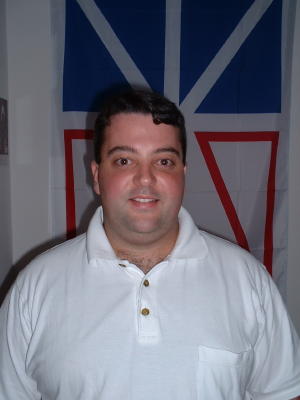INFO - Invitation to CIDER session - 13 April 2007
A message fom cade-aced@csse.ca.
INFO - Invitation to CIDER session - 13 April 2007
Dear CADE/ AMTEC Member,
We would like to invite you to the next presentation in our series of free CIDER sessions. The session features a presentation and discussion with Julie Dixon, a Ph.D. candidate at OISE, University of Toronto, and facilitator at Brock University, Faculty of Education.
Topic: Breaking the ice: Supporting collaboration and the development of community online
Session Details:
In this presentation, Julie explores the concept of transactional distance (Moore, 1993), which relates to the psychologically perceived distance that exists in all learning relationships and can be more evident and potentially problematic in online learning environments. Julie shares her research into the potential of icebreaker activities to ameliorate the transactional distance experienced by undergraduate students and instructors in online learning environments. Early results from the research have been positive and have led to recommendations for practice. To JOIN the session, please click on the link below within 30 minutes of the start time.
When: Friday, April 13th, 2007
Start: 11:00am – 12pm Mountain Time
Where: Online via Elluminate at: https://sas.elluminate.com/m.jnlp?password=M.8B71B60F2931D029AC3837DC06B70D
Please make sure your Mac or PC is equipped with a microphone and speakers, so that we can use the Voice over IP functionality built into the web conferencing software. As well, your web cam will work if you are attending the session on a PC.
Pre-Configuration
Please note that it is extremely important that you get your system set up prior to the start of the event. Please don't wait until the day of the session to do this. Elluminate Live! is a Java application, so there may be a download to your Mac or PC the first time you use the software. Information on installing the necessary software and configuring your PC is available at http://www.elluminate.com/support/ in the “First Time Users” section. If you need assistance, please contact Elluminate’s help desk from http://www.elluminate.com/support-portal/ or 866-388-8674 x2.
The session will be recorded and available for future playback from http://cider.athabascau.ca/
Thanks to Elluminate Live! for providing technical support for this series.
Tags: academy, graduate student, graduate students, graduate school, higher education, education
Labels: academy, education, graduate school, graduate student, graduate students, higher education



2 Comments:
Hi Michael,
Thanks for posting the invitation to our next CIDER session. We appreciate the extra circulation. I have tried to email you twice now in the hopes that I might be able to get you to present some of your research. Interested?
Lynn Anderson
lynnlo@cogeco.ca
Session Coordinator
Canadian Institute of Distance Education Research
6:45 AM
Dr. Anderson,
I imagine if you check your spam or junk folder, you'll see my responses there. I use a GMail account, which typically gets filtered out by most institutional e-mail programs.
MKB
9:29 AM
Post a Comment
<< Home